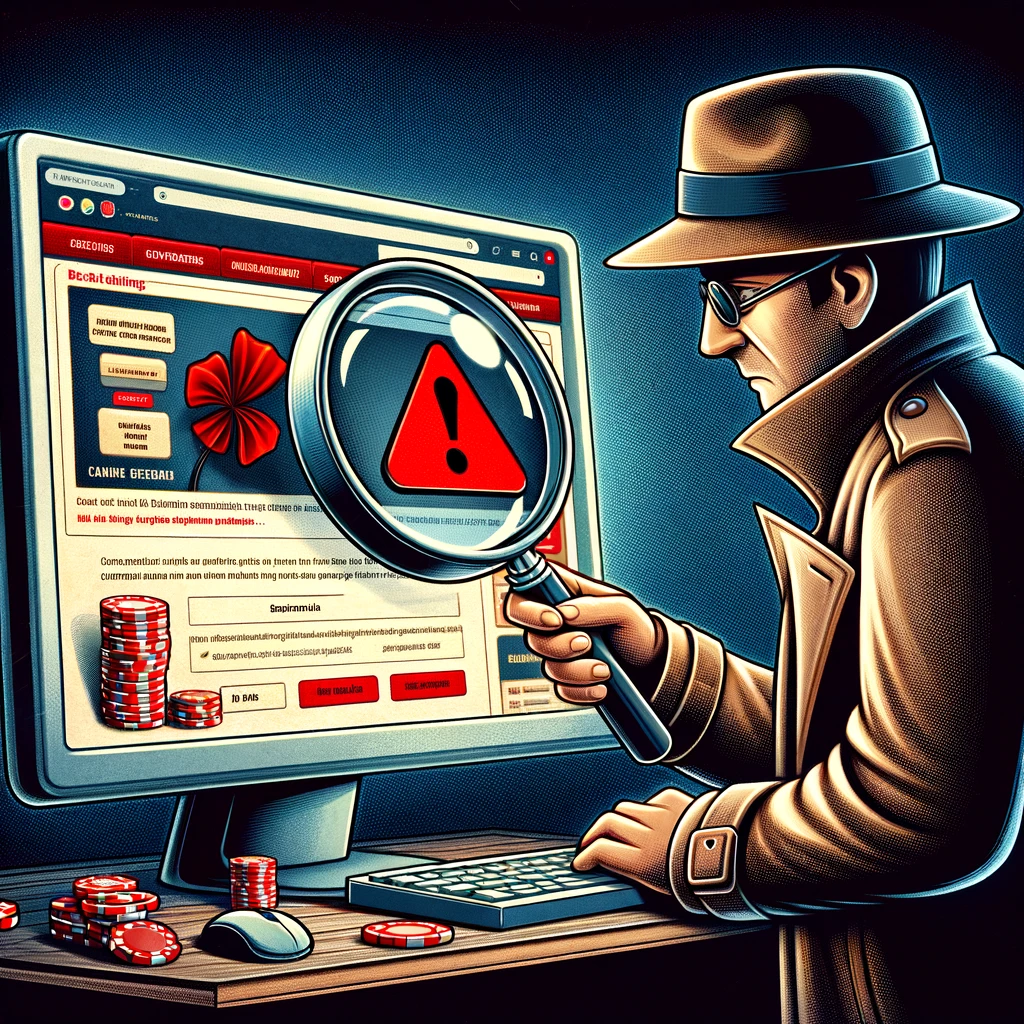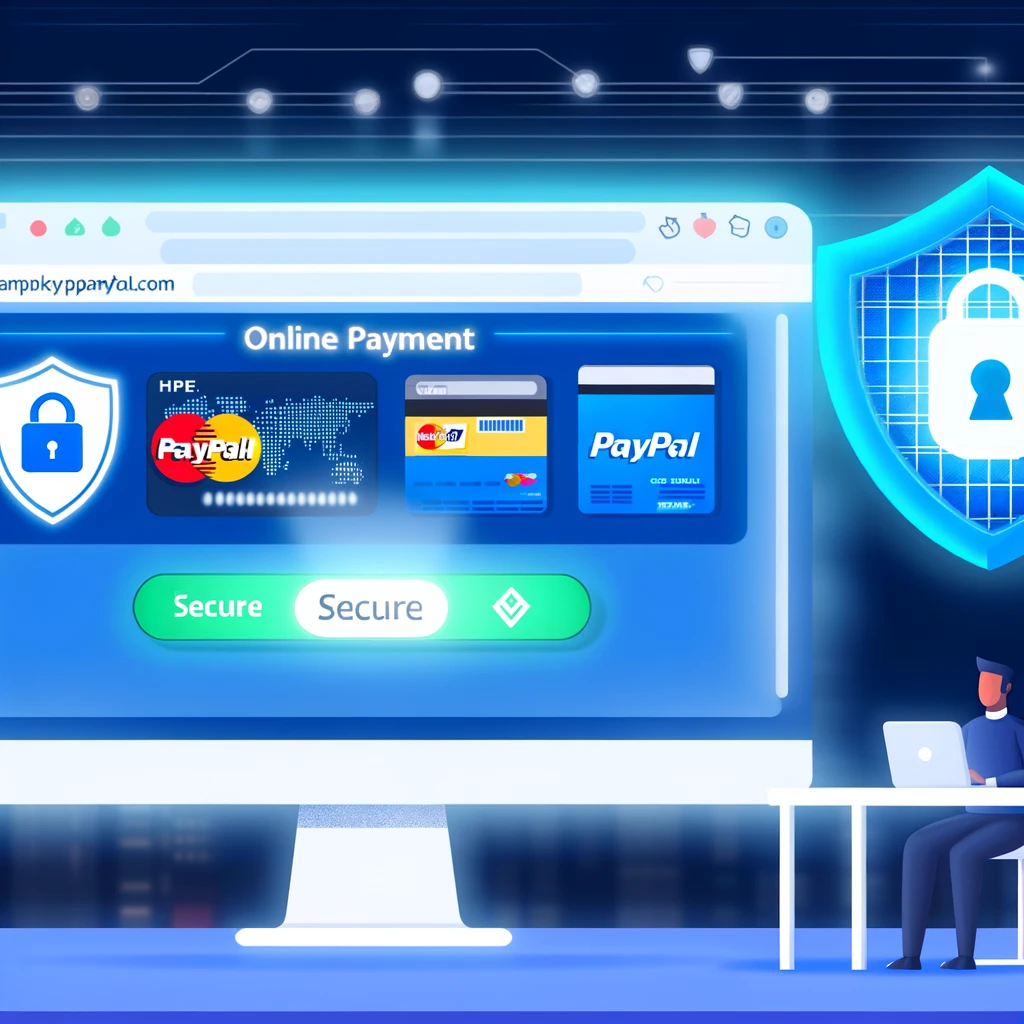How to Identify Scams and Fraudulent Activities in Online Casinos
Identifying scams and fraudulent activities in online casinos requires vigilance and an understanding of common red flags. Crucially, legitimate online casinos are usually licensed and regulated by reputable gaming authorities, so always check for proper licensing information on the website. A lack of transparency regarding the casino’s licensing status is a major red flag. Additionally, credible online casinos often have reviews and feedback available from real users on independent websites; a complete absence of such information or an abundance of negative reviews can indicate a scam. Another warning sign is the offer of unrealistic bonuses or promotions that seem too good to be true, as these can be tactics to lure unsuspecting players. Also, be cautious of casinos that have a history of delayed or non-payment of winnings, as well as those using unknown or very new software providers, which might indicate a lack of legitimacy. Protecting yourself from scams in online gambling also involves ensuring secure and encrypted transactions to safeguard personal and financial information.
How to recognize fraudulent casinos
Australia’s vibrant gambling scene, characterized by its enthusiastic players and numerous online casinos, is not immune to the presence of fraudulent activities. Recognizing fraudulent casinos is paramount to ensuring a safe and enjoyable gaming experience. This article aims to guide Australian players through the process of identifying such deceptive operations.
1. Verify Licensing and Regulation

The cornerstone of a legitimate online casino in Australia is its licensing and regulatory framework. Australian online casinos should hold a license from reputable regulatory bodies such as the Australian Communications and Media Authority (ACMA) or other recognized international gambling commissions like the Malta Gaming Authority (MGA) or the UK Gambling Commission. A legitimate casino will display its licensing information transparently on its website.
2. Look for Secure Payment Methods

Fraudulent casinos often have limited or unsecured payment options. Legitimate casinos, on the other hand, offer a variety of secure and reputable payment methods, including credit cards, e-wallets, and bank transfers, ensuring that transactions are safe and encrypted. Be wary of casinos that only accept cryptocurrencies or untraceable payment methods, as these can be used to evade regulatory scrutiny and consumer protection laws.
3. Research Reputation and Reviews

An effective way to assess a casino’s legitimacy is by researching its reputation through reviews and player feedback. Websites, forums, and social media platforms geared towards Australian gamblers can offer insights into a casino’s conduct. While every casino might have a few negative reviews, a pattern of unresolved complaints, especially regarding delayed or withheld payments, should be treated as a warning sign.
4. Examine the Terms and Conditions

Fraudulent casinos often have unclear or predatory terms and conditions. These may include unreasonable wagering requirements, hidden fees, or clauses that allow the casino to withhold payments under vague circumstances. Before committing to an online casino, thoroughly review its terms and conditions, focusing on withdrawal policies, bonus terms, and any restrictions that might be imposed on players.
5. Assess Customer Support Services

The quality of customer support is an indirect indicator of a casino’s legitimacy. Fraudulent casinos tend to offer limited or non-responsive customer support. In contrast, reputable casinos in Australia pride themselves on providing prompt, professional, and helpful customer service, often through multiple channels like live chat, email, and phone.
6. Beware of Unrealistic Promotions

While attractive promotions are standard in the industry, offers that seem too good to be true often are. Excessive bonuses with extremely low wagering requirements can be a tactic used by fraudulent casinos to lure players. Always read the fine print associated with any promotion and compare it with offers from other reputable casinos.
By exercising due diligence and remaining vigilant for the signs of fraudulent activities, Australian players can navigate the online casino landscape safely. Remember, the foundation of a secure online gambling experience is built on thorough research, caution, and the use of reputable sites.
How to Check the Authenticity of a Casino
Checking the authenticity of a casino, whether online or brick-and-mortar, is crucial to ensure a safe gambling environment and protect oneself from potential scams. Here’s how you can verify the authenticity of a casino:
Licensing and Regulation
Online Casinos: Look for information about the casino’s license on their website, usually found at the bottom of the homepage or within a dedicated «About Us» or «Legal» section. Legitimate casinos are regulated by reputable authorities like the Malta Gaming Authority, UK Gambling Commission, or respective regulatory bodies in countries where they operate. Check the local regulatory body’s website or contact them directly. Most regions with legal gambling have a government agency that licenses and oversees casino operations.
Reputation and Reviews
Online Feedback: Search for reviews and feedback from other users on independent gambling forums, review sites, and social media. Be cautious of casinos with overwhelmingly negative reviews, especially regarding payouts, customer service, and fairness of games. For physical casinos, local reputation can also be a good indicator. Talk to local players or check local business review platforms.
Security Measures
Website Security: For online casinos, look for a secure connection (https:// and a lock icon) in the browser’s address bar. This indicates that the website encrypts data between your computer and the site. Check their privacy policy for how your data is handled and protected.
Software Providers
The authenticity and fairness of the games can often be verified by the software providers used by the casino. Reputable casinos typically partner with well-known and respected software developers like Microgaming, NetEnt, Playtech, and others.
Payment Methods
Authentic casinos offer a variety of well-known and secure payment options for deposits and withdrawals, including credit cards, e-wallets, bank transfers, and sometimes cryptocurrencies. Be wary of casinos that only offer obscure payment methods.
Customer Support
A legitimate casino offers transparent and accessible customer support. Before committing, try contacting their support team to assess responsiveness and helpfulness.
Bonus Offers
While attractive bonuses are common, be wary of offers that seem too good to be true. Examine the terms and conditions attached to any bonus, looking for reasonable wagering requirements and clear terms.
Audit and Certification
Look for evidence of regular audits by independent organizations like eCOGRA, iTech Labs, or TST. These audits verify the fairness and randomness of the games offered.
Physical Address and Contact Information
Legitimate online casinos provide clear contact information, including a physical address and phone numbers. This is also applicable to brick-and-mortar casinos, which should have verifiable contact details.
Verifying the authenticity of a casino involves a multifaceted approach, focusing on licensing, reputation, security, and transparency. By taking the time to conduct thorough research before engaging with a casino, players can significantly reduce the risk of falling victim to scams and enjoy a safer gambling experience.
How to avoid being scammed
Avoiding scams requires a combination of vigilance, skepticism, and knowledge about common scam tactics. Here are general tips to help protect yourself from becoming a victim:
- Educate yourself about the types of scams that are currently prevalent. Internet, email phishing, phone scams, investment scams, and identity theft are common. Awareness is the first step in prevention.
- Never share personal information (such as social security numbers, bank account details, or passwords) unless you are sure of the other party’s legitimacy. Scammers often pose as reputable entities to steal information.
- If you’re contacted by someone claiming to be from a company or government agency, don’t use the contact details they provide. Instead, find the official contact details through a verified website or via official documentation and verify the inquiry.
- When shopping online or making any form of payment, use secure and traceable payment methods. Credit cards and payment services like PayPal offer consumer protection against fraud.
- Be wary of unsolicited emails, calls, and messages, especially those that promise quick money, ask for help transferring funds, offer unsolicited investment advice, or require upfront payment.
- Avoid clicking on links or downloading attachments from unknown sources in emails or messages, as they may contain malware designed to steal personal information or lock your device until a ransom is paid.
- Ensure your computer, mobile devices, and software are up to date. Regular updates often include security patches that protect against known vulnerabilities.
- Utilize strong, unique passwords for different accounts. Consider using a password manager to keep track of your passwords. Two-factor authentication (2FA) adds an extra layer of security.
- Regularly check your bank and credit card statements for unauthorized transactions. Early detection can help prevent significant losses.
- Share information about scams and their prevention with friends and family, especially those who may be more vulnerable, such as the elderly.
- If you encounter a scam, report it to the relevant authorities. This can help prevent others from falling victim to the same scam.
Scammers continuously evolve their tactics, so staying informed and cautious is key. By applying these principles, you can greatly reduce your risk of becoming a scam victim. Always listen to your instincts—if something feels off, it probably is.
What to do if you have been scammed
If you find yourself the victim of a scam, it’s important to act quickly and follow these steps to mitigate the damage and possibly recover your losses:
| 1. Acknowledge the Situation | Recognize that you’ve been scammed. It can be difficult to admit, but early acknowledgment is crucial for damage control. |
| 2. Cease All Communication with the Scammer | Stop all interaction with the scammer immediately. Further communication can lead to more harm. |
| 3. Report to Authorities | Report the scam to your local law enforcement and any relevant government bodies. In many countries, there are specific agencies dedicated to handling scams and fraud, such as the Federal Trade Commission (FTC) in the United States or the Australian Competition & Consumer Commission (ACCC) in Australia. |
| 4. Notify Your Bank or Financial Institution | If the scam involved your financial information or transactions, contact your bank or credit card company immediately to report the fraud. They can help by blocking further transactions, closing compromised accounts, and sometimes reversing fraudulent charges. |
| 5. Change Your Passwords | If the scam could have compromised your online security, change your passwords immediately. This includes passwords for your email, bank accounts, and any other sensitive accounts. |
| 6. Secure Your Devices | If you suspect that your computer or phone has been compromised, run a security scan. Use a reputable antivirus program to check for and remove malware. Consider seeking professional help if you’re unsure how to secure your devices. |
| 7. Alert the Platform | If the scam occurred via an online platform (such as a marketplace, social media, or a dating site), report the scammer’s profile to the site administrators so they can take appropriate action. |
| 8. Monitor Your Credit | Consider placing a fraud alert on your credit reports if personal information was stolen. This can help prevent the scammer from opening new accounts in your name. In some countries, you can also request a credit freeze. |
| 9. Seek Support | Being scammed can be a traumatic experience. Don’t hesitate to seek support from friends, family, or professional counselors. There are also many support groups for scam victims. |
| 10. Educate Yourself and Others | Use this experience to educate yourself and others about the dangers of scams and how to avoid them. Sharing your story can help prevent others from becoming victims. |
| 11. Consider Legal Advice | For significant financial losses, you may want to consult with a legal professional to explore the possibility of recouping your losses through legal channels, although this can be difficult depending on the nature of the scam and the scammer’s location. |
| 12. Document Everything | Keep detailed records of your communications with the scammer, financial transactions, and steps you’ve taken since discovering the scam. This documentation can be crucial for investigations and recovery efforts. |
While being scammed can feel devastating, taking decisive and informed action can help mitigate the impact and increase your chances of recovering from the incident. Remember, scams can happen to anyone, and falling victim to one does not reflect on your character or intelligence.
Conclusion
In conclusion, navigating the aftermath of being scammed involves a multifaceted approach that prioritizes immediate action, self-care, and future prevention. The key steps include ceasing all communication with the scammer, reporting the incident to relevant authorities and financial institutions, securing potentially compromised accounts and devices, and monitoring for further fraudulent activity. Equally important is the psychological impact; recognizing the emotional toll and seeking support from friends, family, or professionals is crucial for recovery. Victims should also consider the broader implications by educating themselves and others about scam awareness to bolster collective defenses against such deceit. While the journey to recuperation can be challenging, it’s important to remember that being scammed is not a reflection of one’s intelligence or character. By taking proactive steps, individuals can mitigate the damage, potentially recoup losses, and fortify their defenses against future scams, turning a negative experience into a powerful lesson in vigilance and resilience.
